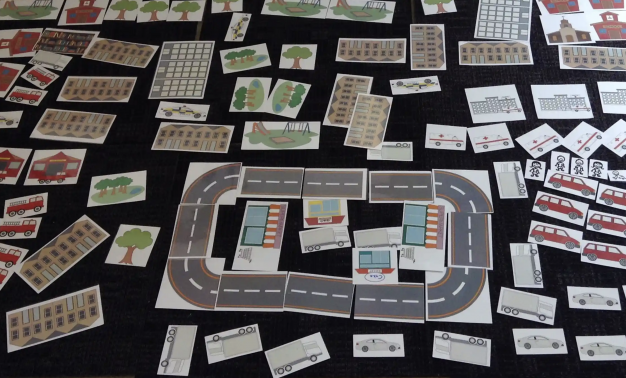
Study calls for young children’s voices to be heard in urban planning
Research carried out in New Zealand has shown that young children are – as many have already argued – ‘intuitive’ urban planners.
The study, which focused on two kindergartens in Dunedin, and involved 27 children aged from two to five, used various activities to canvass children’s views, and found that they were considerate, thorough and thought not only of their own needs, but of other city dwellers.
Youngsters were asked to design their ideal cities using picture tiles, and what they demonstrated was, among other things, a desire for health services and facilities, such as libraries, natural environments and gathering places.
Around two-thirds of the children who took part (66 per cent) included a supermarket in their design, 59 per cent included a hospital, 48 per cent a fire engine and 41 per cent a coffee shop. The latter, its instigator observed, was ‘because their grandma and grandad would use it’.
‘They express their understanding of a city differently’
Dr Christina Ergler and Professor Claire Freeman, who produced the report for the University of Otago, said: “The findings of this study suggest that children do have an understanding of the urban environment they live in, but that it is perhaps different to adult experiences. Moreover, they express their understanding and conceptualisation of a city in a different way than adults are used to.
“They do not necessarily present their understandings and experiences in traditional spatial ways, but the aspects of city life children highlighted clearly speak to their already deep understanding of the links between the social, built and natural landscapes in cities.”
The children also took their research into their local neighbourhoods to give first-hand insights into what they liked and didn’t like about area they live. They raised concerns of the often overlooked needs of non-human things, such as sea creatures and plants, and also demonstrated an awareness of the links between environmental protection and conservation.
The study highlights the importance of involving the voices of children and young people who think holistically, to create a functioning as well as healthy, fun and safe city. It identifies the need for communities, planners and urban policymakers to ensure young children can participate and help make the most of their cities in a safe, inclusive way.
Click here for more about the study.



